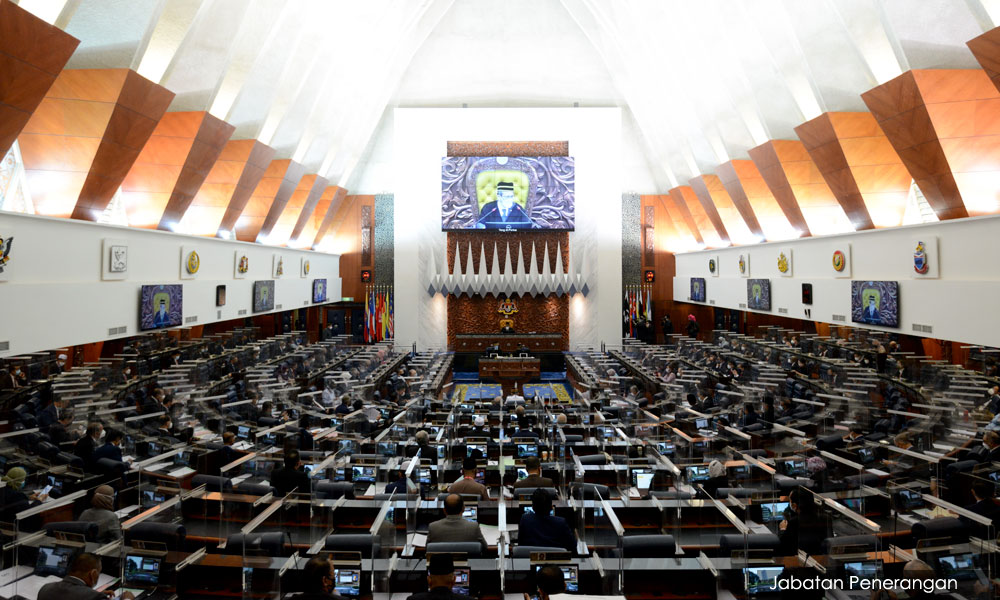MP SPEAKS | A second chance to rebuild lives
MP SPEAKS | On July 25, the Insolvency Department celebrated its turn of the century since it was first established in 1924.
Underscoring the importance, significance, and contributions of the department to the nation and within the civil service, Prime Minister Anwar Ibrahim officiated the centennial celebration in Putrajaya.
Last year, in announcing Budget 2024, Anwar announced the government’s compassionate “second chance policy” which sought the department to discharge at least 130,000 bankrupts by the end of the instant year.
This landmark policy, the first of its kind in the history of Malaysia, recognising the inherent faults of humans, economic hardships caused by the Covid-19 pandemic, and global financial strains, aimed to provide a second chance in life to bankrupts to lead a new life and return to contributing to Malaysia and its economy.
As of June 2024, officers and staff of the department after toiling tirelessly successfully discharged some 142,510 bankrupts, surpassing the prime Minister’s target by 12,510 bankrupts discharged in a short period of only eight months since the announcement of the policy in October 2023.
The total of 142,510 bankrupts translates to, and represents, 142,510 families rescued under Anwar’s leadership and the government from the clutches of bankruptcy.
Fulfilling agenda
In the department’s 100 years, no government has introduced a policy of this nature which sought to approach bankruptcy with compassion instead of punishment. But the Madani government has.
In this regard, recognition and praise must also be given to the department under the able leadership of its present director-general M Bakri, who supported and delivered the government’s vision to provide 130,000 bankrupts across the country with a fresh start.

This is despite administering these bankrupts and more with only a physical filing system. I have personally gone to the ground, to department offices in Ipoh, Alor Setar and Terengganu to see the filing systems, meet staff and see the challenges the department faces. It is not easy.
To address this, an electronic filing system is being developed at present, spearheaded by the director-general himself, which is expected to enhance the administration process and further expedite the discharge from the bankruptcy process.
I will also continue visiting all department offices across the country to hear our officers, consult lawyers, note their challenges and as policymakers, assist in this regard with necessary policies.
To any reasonable mind, the “second chance policy” is direct evidence of Anwar’s understanding of, and solidarity with, the struggle of the common man, in particular within the lower-income group.
It reflects his steadfast and continuous commitment to law reform tempered with mercy that those who may have made mistakes in the past ought to be treated with compassion and accorded a second opportunity to rebuild their lives.
Governing in public’s interest
It is noteworthy that this policy is however not the government‘s first law reform premised on the fundamental principle of tempering justice with mercy.
Last year, the cabinet also approved the tabling in Parliament of the Abolition of Mandatory Death Penalty Act 2023 which abolished the mandatory death penalty and imprisonment for natural life in Malaysia.
There was also the Revision of Sentence of Death and Imprisonment for Natural Life (Temporary Revisionary Jurisdiction of the Federal Court) Act 2023 that empowers the Federal Court to review some 1,020 cases involving the use of the mandatory death penalty and/or imprisonment of natural life in the past.

This was yet another fundamental law reform studied by several governments but delivered on by the government.
Policies and law reforms such as these are a testament to the government’s approach to governing in the interest of the public, the less fortunate in line with the ihsan principle or compassion of the Malaysia Madani agenda.
It is only the tip of the iceberg in many more law reforms and policies to come that are people-centric.
To end, I hope that all the 142,510 individuals discharged from bankruptcy will make full use of this opportunity to learn from their mistakes, rebuild and once more become contributing members of society to grow Malaysia’s robustly developing economy.
M KULASEGARAN is the Ipoh Barat MP and deputy minister in the Prime Minister’s Department (Law and Institutional Reform).
The views expressed here are those of the author/contributor and do not necessarily represent the views of Malaysiakini.
RM12.50 / month
- Unlimited access to award-winning journalism
- Comment and share your opinions on all our articles
- Gift interesting stories to your friends
- Tax deductable
